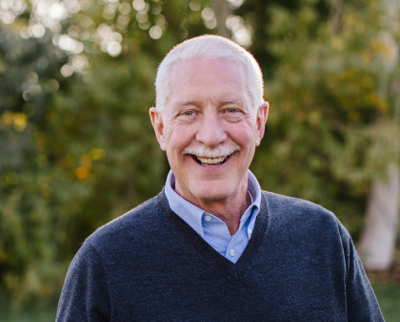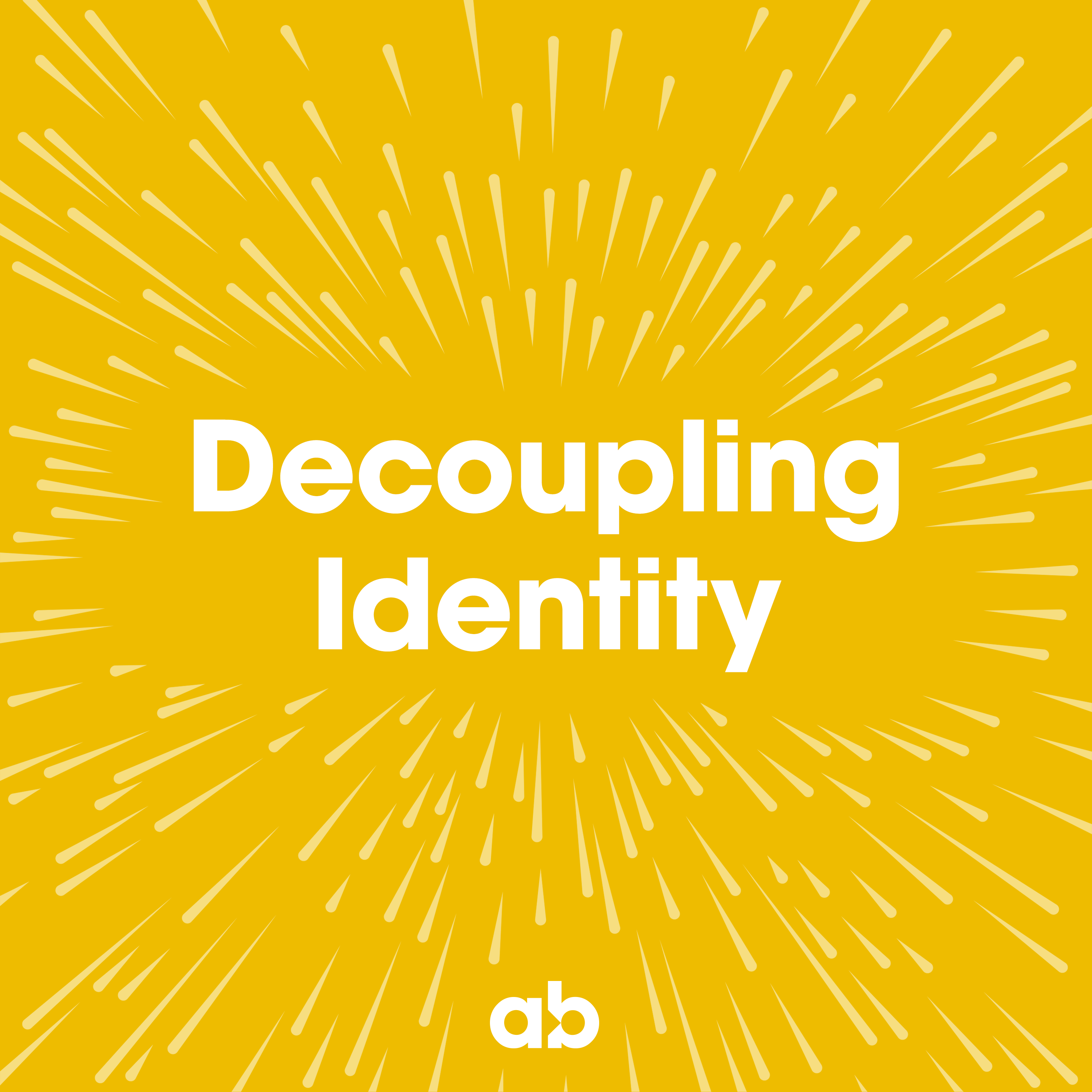Ambition. Unleashed.
Ep5. From “playing not to lose” to “playing to win” - with Bob Anderson
PODCAST | 01h : 01m : 57s

Host: Sara Moore

Ep 5. SHIFT FOUR: Playing not to lose > Playing to win [with Bob Anderson]
In this episode of Ambition. Unleashed. Sara and Wayne discuss the natural tension we all hold as humans between staying safe and striving for a bolder vision, mission or purpose. Lots of commentators talk about “leading with purpose”, but this is easier said than done. Striving for our true purpose often comes with inherent risk – livelihoods, relationships, our sense of identity, our ego. This leaves many of us “playing not to lose” versus “playing to win.” It can be toxic to the soul to only ever stay safe, but what can we do to bravely take steps towards living more purposefully?
To help them answer this, Sara and Wayne sit down with Bob Anderson, a true pioneer in the field of leadership development and research. Bob is the founder of The Leadership Circle Profile (LCP), an integrated and innovative leadership assessment tool used by Fortune 500 organisations to develop transformational and more conscious leaders.
He's a very profound guy, and as a result their conversation was far reaching – but we encourage listeners to stay tuned, because the insights he offers are extraordinary.

Guest: Bob Anderson
Bob has dedicated his career to exploring the intersections between leadership and personal mastery, and between competence and consciousness. As a founder of Leadership Circle, Bob lends his expertise to developing practitioners around the globe to carry on the powerful work derived from the tools and offerings these two companies provide to leaders. In addition, Bob recently co-authored
- Mastering Leadership, An Integrated Framework for Breakthrough Performance and Extraordinary Business Results, and
- Scaling Leadership, Building Organizational Capability and Capacity to Create Outcomes that Matter Most.
Show notes and links
https://leadershipcircle.com/en/
Blog: Acts of Bravery – Part 1: Authenticity
Blog: Acts of Bravery – Part 2: Willing to be at stake
Blog: Consciously Choosing Creativity
https://leadershipcircle.com/en/our-books/
https://leadershipcircle.com/en/whitepapers/
https://thinking.achievebreakthrough.com/leadership
https://thinking.achievebreakthrough.com/podcast
https://beyondthecourse.co.nz/wp-content/uploads/Leadership-Circle-Spirit-Of-Leadership-1.pdf
Transcript
Introducing the shift: "Playing not to loose" > "Playing to win"
[sara]
In this episode of Ambition. Unleashed. we’re going to discuss the natural tension we all hold as humans between staying safe and striving for a bolder vision, mission or purpose. Lots of commentators talk about “leading with purpose”, but this is easier said than done. Striving for our true purpose often comes with inherent risk – livelihoods, relationships, our sense of identity, our ego. This leaves many of us “playing not to loose” versus “playing to win.” It can be toxic to the soul to only ever stay safe, but what can we do to bravely take steps towards living more purposefully.
So, a question for you, if you review your life right now are you playing to win? Or are you playing not to lose?
[wayne]
I wonder what the phrases ‘play not to lose’ and ‘play to win’ build in your mind as you hear them today – is it about sport, defeating the opponent, getting victory in the arena, being number 1?
Think of someone you greatly admire, or a leader who has impacted you for the good, or stories of great moments in your family that have been told again and again, or films that have moved you and stayed with you long after the credits rolled.
Or more personally, think of those moments when you were really proud of what you achieved, what you accomplished, or overcame…
In all of these there’ll be tangible and visible qualities in the motivation, and action and behaviour that probably included courage, persistence, strength, selflessness and more. When these words didn’t just exist as words but were really embodied, chosen. (the concept of ‘you’ just disappears)
Not as saints or superheroes but just people who did some remarkable things and chose paths that required courage.
[Sara]
It’s been said that we watch or read so much via Netflix or Prime or Cinema or novels because they enable us to vicariously experience these qualities and journeys rather than live bravely ourselves.
But at the heart of this shift is an assertion that we each have the ability to live bravely and that indeed, the complexities of our world require leadership that is fueled by an operating system that is not anchored in fear but in something else.
[wayne]
Fear can be a funny thing, can’t it. The millions of cat videos on the internet when a cat jumps out of the room from a standing start because of a cucumber landing in front of it, or the old cartoons like Disney’s Dumbo when Timothy the mouse – who is very small – causes a whole troop of elephants to scream and climb tent poles. Fear can be funny because it points to something about fear that is irrational, not entirely accurate.
Fear is a funny thing except when it isn’t. For anyone who has really been afraid, or suffered anxiety, it’s more than a psychological or head thing, it’s a whole-body thing and it can all feel very, very real.
But often, fear and avoidance lurks. That despite our successes and esteem and seniority and accomplishments, fear hides and it disguises itself, whether you’re president or painter or PhD. It’s called a Play not to Lose mindset. When we realise there is a fragility to our (values), status or ego or comfort or security – and then behaviours will occur and exist (unconsciously) from that mindset (– we are still going forwards but our actions are tainted by a need to preserve or get rid of something/an undesired outcome). And much of this can exist in our blind spots – we just don’t see it happening. Others can see it happening, but it occurs very easily. When what I perceive that what is at risk is a stronger determiner on my actions than a vision or purpose that enables me step into the unknown.
[sara]
Because what if underneath some of the very things we want to avoid or things we fear, there are many assumptions that do not stand up to scrutiny and that could be challenged?
Our fears do deserve examination. Because they are powerfully impacting our choices and the behaviours we exhibit. They do in that sense, have a causal impact on the future we are actually creating and they do massively impact our ability to lead in the complexities of our world today.
[wayne]
So, in this shift we will distinguish an operating system inside each one of us where there is choice – instead of a reactive, avoiding, protective, or even controlling mindset in response to fear, we can choose to cultivate a ‘play to win’ mindset that enables us to be comfortable in the face of uncertainty, less concerned about me and what others think of me, that doesn’t simply deny fears but instead offers a powerful reframing/different paradigm which can help cause the breakthroughs that the world desperately needs...
As we record this episode the world is watching with horror at what it seems is one person’s choice to wreak havoc and destruction in Ukraine, and myself and many people are searching for tangible ways we can make a difference to refugees and Ukraine itself. But what is also happening and personified hugely by President Zelensky is a posture of leadership and courage where we see the protective mechanisms of self and fear being overridden by a posture of service which is bigger than himself. When concerns about self, how I’m perceived etc are secondary to the collective, greater good. His words and actions are cultivating courage.
After all, what does it really mean to encourage someone? From Old French encoragier "make strong, hearten," from en- "make, put in, put into" and courage "courage, heart". In Zelensky we are seeing a historical example before our eyes of how courage is contagious and transformational leaders are able to spread it.
[sara]
A little while ago Wayne and I interviewed a true pioneer in the field of leadership development and research, Bob Anderson. Bob has dedicated his career to exploring the intersections between leadership and personal mindset mastery and is the founder of The Leadership Circle Profile (LCP), an integrated and innovative leadership assessment tool used by Fortune 500 organisations to develop transformational and more conscious leaders. The Leadership Circle Profile allows leaders to gain self awareness and see their own development journey through the lens of the Universal Model of Leadership – a framework created by Bob that distils the best leadership theory and research into a tool. Forbes named the LCP one of its top executive development assessments.
[wayne] Bob is the co-author of two books, Scaling Leadership: Building Organizational Capability and Capacity to Create Outcomes that Matter Most AND Mastering Leadership: An Integrated Framework for Breakthrough Performance and Extraordinary Business Results - which has been described as a seminal work in the leadership field. It was a Top Ten Bestseller on 800ceoread and was a Top 10 editorial pick on Amazon.
[sara] He's a very profound guy, and as a result our conversation was far reaching – but we encourage you to stay tuned, because the insights he is able to offer are extraordinary and we’ll summarize our take-home insights after the interview.
Interview transcript coming soon
Post interview analysis
[Sara] Wow, you know when you realize Wayne, early into the start of that interview – OH - we are going to have this type of conversation?! Bob talked about not wanting to talk about this shift in leadership but to be it – I really felt that!
[Wayne] Yeah, me too, I saw how this shift in leadership was embodied in Bob’s own story and journey. He’s been purpose-led and therefore helped create so much which has had an impact on the global conversation about leadership, but he’s humble enough to admit that playing not to lose is as much a risk to him each day as it is for any one of us.
[sara]
I think there are [three things to really underline here] a few things here we need to summarize on: Firstly, distinguishing what playing not to lose is and then playing to win
1 – first – tapping in the fear
That playing not to lose, protecting ourselves, our self-esteem or from rejection, feeling fear – is normal, more than normal it is necessary part of our development as adults – but it has limits, it’s out done by complexity.
He used a great example of identifying yourself as an idea’s person, if someone disagrees, then you naturally dismiss, get angry. We create this external narrative of who we are – this is a strengthening interpretation of who we are - that has limits, distracted by defending them or limited by what we say we are not – we meet so many people who say they are not public speakers, don’t have charisma, not visionary, nit detailed people. This shift invites leaders to meet these interpretations, see the limits, face them, question them – and in fact conclude it is all an illusion!
I remember a time when I realized this for myself, and I went dancing in the garden singing I could be anyone I choose to be – its all made up any way!!!! This shift makes us look at the fact we can’t really control very much, other than our own responses, I cant control the results, I cant control what other people do around me – seeing this only drives us further into maintaining the status quo or pressuring for a result – shouting at our plants to flower! Doesn’t make sense!
If instead we relate to the circumstances through a lens of ‘There is no way things should be, they just turn out the way they do’, then all that is left it ‘what’s next then…’ What is the next action to take when re-calibrating ourselves to the mission, ambition or purpose?
[wayne]
2 – the importance of purpose
Fear is always going to be there. Growth takes us further into it – that’s how it works. But its not something to get rid of, admiring successful people thinking they don’t seem to be fearful - it’s not in the way it is the way. To shift to playing to win, we have to notice the fear, be present to it (fully let it in) but not indulge it – finding evidence for and against it – resisting the desire to rid our selves of it.
People talk about wanting to address a work culture where people have a fear of failure – like its something to get rid of. I wonder if we asked people instead to consider having more conversations about ‘what is that I/we fear that has me or us play not to lose?”
A core piece of this has to be about identifying your purpose or the outcome that you are so compelled to achieve. Converting the fear into that edgy excitement! This requires that belief in the mission (ep 2 with steven carver on unlimited possibility – no other option than to land the plane safely) and sitting in the unknown, with others, facing the discomfort of not having the answers or not knowing its possible – trusting the answers to emerge in the conversation – like the caterpillar melting to goo, it doesn’t know that there is something else!
We want to underline the belief – we have to really commit full out, notice the little voices of doubt, see it in our minds eye, see it and feel it…
Being purpose led – playing to win – striving to achieve something – expands the possibility - that replaces the playing not too lose - striving to get rid of something, aiming actually for safety – which constricts possibility.
Of course, Its tiring living on the edge and we cant do this all the time – but it is also tiring to maintain the safety at all costs! It becomes toxic. Helen Keller: "Avoiding danger is no safer in the long run than outright exposure. The fearful are caught as often as the bold."
So let’s remember what we’re up against: our world isn’t wired to allow for individuals to naturally bring their purpose and vision – especially in organisations that are built on hierarchy and command and control. There are a lot of forces and incentives to play not to lose.
[sara]
3 – slow down
Lets talk the ‘busyness trap’ - we are all busy being busy, there is never enough time, we are focused on making things more efficient, sending pre-reads, shorter meetings, getting things into fast digestible chunks – I’m all for this by the way but this busyness and strive for efficiency is a trap which kills creativity, and uses up time playing not to lose - valuable time for examining the fears or contemplating the hard stuff we don’t have answers for. How do you become a parent and still thrive in your career, how do we meet higher levels of performance without burning people out, how do you half the time and resources it takes bring new vaccines to market or how do you eliminate the carbon impact of your supply chain?
Further than this the way we are wired dismisses the value of this, we need to be busy organizing the knowledge we already have. I hadn’t heard Einstein’s quote before that bob told us – “I tried 99 times and got nothing, then I sat in silence and the ideas arise in crowns” – this has happened countless times to me waking in my sleep usually with the answer to my conundrum! This I think reframes what we need to get great at – not putting in more process to mitigate risk – like relentlessly acquiring more knowledge in search of definitive answers, but to create the environments where it is ok to sit in more still and calm ways to tap into that layer of creativity and where we can trust our intuition.
[summary to end]
[wayne]
So, as we look at our week or month ahead, here are some practical invitation to get into this
- [new question] Keep the question at the heart of this shift in front of you as you go through your week and month: is this playing not to lose, or am I playing to win? Am I seeking safety here, or am I being led by purpose? And rather than this being a shaming or judgmental question, just notice it, be curious, invite yourself into this shift in the pieces of your week.
STOP, get perspective (through mindfulness or other means) and challenge yourself to take a different action
[sara]
- Try gathering a group together to talk about important problems without expecting the answer to come from anyone in the group specifically or even yourself for that matter? Just for possibilities sake. Ask the team what is it we are fearful of? Are we playing not to lose here? What are the problems and questions we don’t know the answers to yet? What is it we really, really want here that is more purpose-led that shifts the conversation?
- And lastly, try the exercise of sitting quietly, relaxed, letting thoughts pass through your mind and listening to the inner voice – your intuition and see what it says to you?
Helen Keller: "Avoiding danger is no safer in the long run than outright exposure. The fearful are caught as often as the bold."
[Wayne] And as we’ve discussed so much already in this podcast, leadership in life and work is so much more about “who we are being” as opposed to “what we’re doing” and these lines from the poem by Amanda Gorman, spoken at President Biden’s inauguration, demonstrate this beautifully:
When day comes, we step out of the shade, aflame and unafraid.
The new dawn blooms as we free it.
For there is always light,
if only we’re brave enough to see it.
If only we’re brave enough to be it.
[sara]
Thanks so much for listening today – it takes commitment to stick with topics as profound as what we’re discussing here – but achieving our ambitions can’t simply be boiled down to basic tips and tricks and we promise you the insights we’ve discussed here today will serve you. That said, playing to win is a huge topic and if you have any questions please do email us at: ambition@achievebreakthrough.com.
If your enjoying what your listening to, please leave also us a five star a review, and recommend us to your friends and colleagues on social – or in a real life conversation perhaps!
[wayne]
In the next episode, we take todays conversation further with guidance from one of Bob Andersons European colleagues at the Leadership Circle. We’ll discuss the two profiles of human consciousness: “reactive” and “creative” we introduced today. Our world is calling for the ambitious to be more creative in our way of “being and responding the challenges we have". Seeing ourselves AS our identity versus simply HAVING an identity is often what gets in our way because if we are our identity we need to preserve it to survive instead of play full out.
Transcript
Introducing the shift: "Playing not to loose" > "Playing to win"
[sara]
In this episode of Ambition. Unleashed. we’re going to discuss the natural ...
Next episode
Ep6. From “preserving identity” to “decoupling identity” - with Liberto Pereda
In this episode we introduce two profiles of human consciousness: “reactive” and “creative.” Todays ...
Listen now ➤
